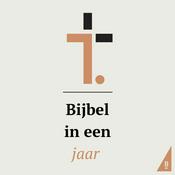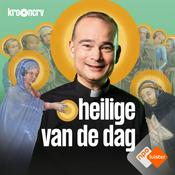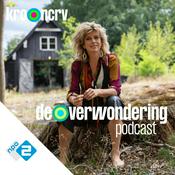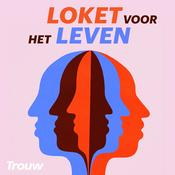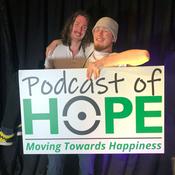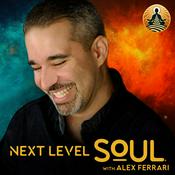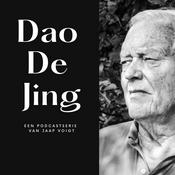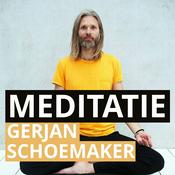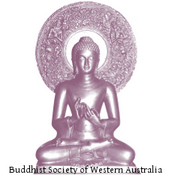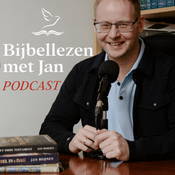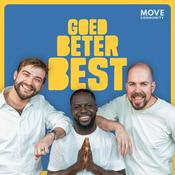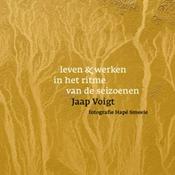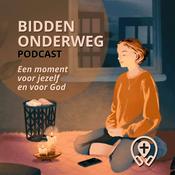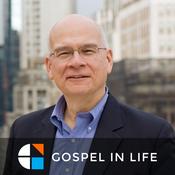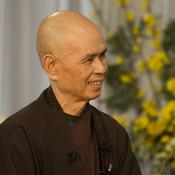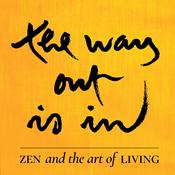913 afleveringen
- What does it take to finally say, “I’ve had enough of being swept around by life,” and begin walking a path toward real freedom?
Ian Challis invites us to first take a grounded look at samsara—the restless, exhausting cycle of craving, aversion, and wandering that shapes so much of human experience.
Ian describes samsara not as a moral failing but as the natural turbulence of being human: the push and pull of desire, fear, habit, and cultural conditioning. Through vivid stories—including a moment of panic while snorkeling—he illustrates how easily we’re carried by currents stronger than our intentions, and how transformative it can be to “put our feet down” and reclaim stability. Drawing on the Buddha’s teachings, he explains samsara as the momentum of ignorance and craving, continually renewed by cultural messages of scarcity, competition, and “if only.” Ian emphasizes that these forces operate both internally and collectively, and that recognizing them is the beginning of wise view—the first step on the Noble Eightfold Path.
So how do we respond once we do see samsara clearly? He describes saṁvega, the spiritual urgency that arises when the heart recognizes suffering and refuses to keep passing it along—whether through inherited family patterns, cultural conditioning, or our own unconscious habits. From this urgency comes a shift in view: a willingness to let go of unhelpful opinions, identities, and stories that keep the wheel spinning. Ian shares the five views he’s chosen to center on this year—each beginning with “I trust…”—as a way of simplifying and clarifying his path:
I trust the dharma.
I trust myself enough to walk this path.
I trust that I don’t walk it alone.
I trust that every human being is worthy of kindness and safety.
I trust that my actions matter.
He closes by reminding us that samsara isn’t just a cosmic cycle—it’s the moment‑to‑moment drift into fear, craving, outrage, or despair. Each time we notice and return to center, the wheel loses momentum. Each time we “put our feet down,” we move a little closer to freedom.
______________
Ian Challis is a student and teacher in the Insight Tradition of Buddhism. He is a teacher, founding member, and past guiding teacher of Insight Community of the Desert in Palm Springs.
Ayya Khema, Leigh Brasington, Narayan Liebenson, Larry Yang, and Arinna Weisman are key teachers who have inspired and illuminated his practice.
Serving Queer community is a passion. 2025 marks his co-teaching of the 9th annual Queer retreat at Dhamma Dena Retreat Center with Leslie Booker. He is also a qualified teacher of MBSR, a graduate of Spirit Rock’s Community Dharma Leader teacher training, and was formally invited by Arinna Weisman to teach in the lineage of U Ba Khin and Ruth Denison.
Find him at ianchallis.com
______________
To support our efforts to share these talks with LGBTQIA audiences worldwide, please visit https://gaybuddhist.org/
There you can:
Donate
Learn how to participate live
Find our schedule of upcoming speakers
Join our mailing list or discussion forum
Enjoy many hundreds of these recorded talks dating back to 1996
CREDITS
Audio Engineer: George Hubbard
Producer: Tom Bruein
Music/Logo/Artwork: Derek Lassiter - What if the imagination itself could become a doorway to compassion, ease, and awakening?
Danadasa begins by grounding listeners in the Tibetan practice of tonglen—breathing in the suffering of oneself and others as dark smoke, and breathing out cool, healing moonlight. Rather than treating this as a grim or burdensome task, he reframes it through the imaginal realm: a space where metaphor, poetry, and visualization bypass the thinking mind and speak directly to the heart. Danadasa highlights how imaginal practices help counter our culture’s tendency to live “up in the head,” inviting a more embodied, heartfelt presence.
From there, he expands the teaching into a guided journey that blends traditional tonglen with Vajrayana-style visualization:
Imagining the Buddha dissolving into light and taking residence in the “palace of the heart.”
Breathing the world’s suffering into the Buddha within, allowing him—not the practitioner—to purify it.
Exhaling moonlight that dissolves fear, anxiety, and emotional obscurations.
Exploring tathāgatagarbha, the teaching that all beings carry the seed or “womb” of Buddhahood.
Danadasa also reflects on the role of the guru in Vajrayana practice, describing how a teacher’s presence can nonverbally transmit confidence, joy, and a felt sense of one’s own potential. He cites Mark Twain’s line—“the most painful arguments I’ve ever had are the ones that never happened”—to illustrate how imagination shapes experience, and how an illumined imagination can reshape it toward freedom. The talk ultimately becomes an invitation: to trust the creative mind, to soften into shared humanity, and to let the heart become a place where suffering is transformed rather than feared.
______________
Danadasa (he/him) began meditating and practicing Buddhism in 1993 and was ordained in the Triratna Buddhist Order in 2011 at the San Francisco Buddhist Center. At his ordination, he received his Buddhist name Danadasa which, in Sanskrit, means “servant of generosity”. In 1995, he developed a heart connection with the archetypal Buddha Amitabha, rooted in the Japanese Pure Land tradition Jodo Shinshu (known in the Western world as Shin Buddhism), and has been practicing an Amitabha sadhana (devotional practice) since 2011.
Danadasa is deeply passionate about teaching meditation, mindfulness and Buddhism in a somatic and embodied way, bringing the Buddha’s teachings to life in our imaginations through images and storytelling. Embodied practice is the path of getting out of our heads and into our bodies, for it is in our bodies that liberation reveals itself.
Over the past 20 years, Danadasa has held various administrative and leadership roles within the San Francisco Buddhist Center (SFBC). And in 2023, he resigned from all of his formal SFBC roles, as well as taking a break from teaching for a period of wandering in the wilderness, free from the external responsibilities, expectations and social norms of the monastery, following in the footsteps of the great “crazy wisdom” Mahasiddhas of the past. Since then, many lineage Masters and archetypal Buddhas have provided Danadasa with guidance and inspiration, including Tilopa, Naropa, Padmasambhava, Vajrakilaya, and Machig Labdron.
In 2024, Danadasa rece
______________
To support our efforts to share these talks with LGBTQIA audiences worldwide, please visit https://gaybuddhist.org/
There you can:
Donate
Learn how to participate live
Find our schedule of upcoming speakers
Join our mailing list or discussion forum
Enjoy many hundreds of these recorded talks dating back to 1996
CREDITS
Audio Engineer: George Hubbard
Producer: Tom Bruein
Music/Logo/Artwork: Derek Lassiter - When will we realize that peace isn’t something we create, but something already here—quietly waiting for us?
That’s the thread David Lewis follows in this winter‑solstice talk, weaving together poetry, Buddhist teachings, and reflections on the natural world. He begins by exploring how solstice traditions mirror dharmic values: stillness, silence, and the movement from darkness toward light.
Drawing on images from Patricia Fargnoli’s poem Winter Grace, David invites listeners to recognize how truth often emerges in quiet, slowed‑down seasons. He then connects this to foundational Buddhist ideas—especially dukkha as “unreliability”—and explains how acknowledging life’s darkness is a necessary prelude to awakening. Along the way, he highlights traditional practices such as vassa (the monsoon retreat), uposatha observance days, and the universal human need for a Sabbath‑like pause.
David looks at cultivating peace of mind as both a personal refuge and a contribution to the wider world. He emphasizes that peace isn’t the absence of difficulty but the ability to remain steady within it:
Letting go as the path to peace, illustrated through Ajahn Chah’s famous lines about releasing a little, a lot, or completely.
Peace as the mind’s natural state, supported by the Buddha’s teaching on the luminous mind.
Attachment and distraction as the opposites of peace, and the practice of gently releasing both.
Gratitude as a happiness practice, echoing Aesop and modern monastics.
Joy as the unfolding result of practice, expressed through Bhikkhu Analayo’s “progressive refinement of joy.”
David closes with a reminder from Dōgen that life is fleeting and awakening is always available now. His solstice wish for the community is simple and heartfelt: may they rest in the natural ease of body and mind, and may all beings be free from needless suffering.
______________
David Lewis has been following the dharma path for 50 years. He has a degree in comparative religious studies and is a graduate of Spirit Rock Meditation Center’s Advanced Practitioners Program. David shares the dharma at several sanghas, including Mission Dharma, Insight Upper Market, and the Gay Buddhist Fellowship in San Francisco.
______________
To support our efforts to share these talks with LGBTQIA audiences worldwide, please visit https://gaybuddhist.org/
There you can:
Donate
Learn how to participate live
Find our schedule of upcoming speakers
Join our mailing list or discussion forum
Enjoy many hundreds of these recorded talks dating back to 1996
CREDITS
Audio Engineer: George Hubbard
Producer: Tom Bruein
Music/Logo/Artwork: Derek Lassiter - What does it mean to give something freely, without expecting anything in return?
In this talk, Marcia Lieberman introduces us to the Japanese word kubari—a term for paying attention to others, as well as a twig used in flower arranging.
Drawing from both cultural insight and Buddhist teachings, she shares how kubari expresses a kind of mindful generosity that is not transactional, but attuned and spontaneous. Through personal reflections and references to traditional stories, Marcia invites listeners to reconsider the depth behind acts of giving, suggesting that true generosity arises from awareness, not obligation.
Marcia discusses how kubari is rooted in presence and observation. One must first see what is needed in order to respond with kindness. She contrasts this with the Western notion of giving that often involves expectations, agendas, or a sense of scarcity. Key ideas she explores include:
Kubari as a practice of attention: noticing the world around you and recognizing opportunities to give.
Giving without attachment: letting go of the need for recognition or reciprocity.
Everyday generosity: how small, thoughtful acts—like offering an umbrella or a warm meal—can become meaningful expressions of care.
Cultural nuance: how Japanese values and aesthetics shape the concept of giving differently from Western frameworks.
Her message is a gentle reminder that generosity is not about quantity—it’s about heart, timing, and connection.
______________
Marcia Lieberman is a long-term Buddhist practitioner who has been affiliated with San Francisco Zen Center since 1989, having resided at all three practice centers. She was Shuso (Head Student) at Green Gulch Farm for the Spring 2017 Practice Period. As an artist, her affinity for beauty and form in ceremony has been a guiding part of her practice.
Marcia taught in the photography departments at UC Berkeley and California College of the Arts. In her editorial work she was noted for photographing famous and noteworthy women. Having graduate degrees both in Fine Arts and Buddhist studies, Marcia is able to draw from both of these backgrounds in her work. She recently published her third photographic book, Clean Slate—Images from Dogen’s Garden, with commentaries by Dogen scholars.
______________
To support our efforts to share these talks with LGBTQIA audiences worldwide, please visit https://gaybuddhist.org/
There you can:
Donate
Learn how to participate live
Find our schedule of upcoming speakers
Join our mailing list or discussion forum
Enjoy many hundreds of these recorded talks dating back to 1996
CREDITS
Audio Engineer: George Hubbard
Producer: Tom Bruein
Music/Logo/Artwork: Derek Lassiter - In this quietly powerful talk, Jokai Blackwell reflects on how Zen practice invites us into a deeper intimacy with life — not by escaping discomfort, but by softening our resistance to it. He shares personal stories and teachings from Zen and early Buddhism that reveal how clinging to control or certainty only increases suffering.
Instead, Jokai encourages listeners to cultivate a practice of surrender: of returning, again and again, to the grounded experience of the body, breath, and present moment. This embodied awareness becomes a gateway to wholeness — not a fixed state, but a dynamic unfolding that includes everything, even the messy and uncertain.
He outlines several key teachings to support this shift toward presence:
Wholeness is not perfection: It's the capacity to include and be with whatever arises.
Grasping and aversion fragment our experience: They reinforce the illusion of separation.
The body is a reliable refuge: Returning to bodily sensations helps us drop into direct experience.
Letting go is active, not passive: It's a courageous practice of turning toward, not away.
Practice is relational: Awakening unfolds in connection — with self, others, and life itself.
Jokai’s words are both spacious and grounded, inviting listeners into a felt sense of trust — not in outcomes, but in the wisdom of showing up fully to the life that’s already here.
______________
Jokai moved to Southern California from the UK in 2000 to study residentially at Yokoji Zen Mountain Center. During his formal training, Jokai completed the full Zen koan curriculum. In 2014, he received Dharma Transmission (authorization to teach) in the White Plum lineage of Zen Buddhism from Charles Tenshin Fletcher Roshi, and Inka (final approval) in 2022.
Jokai emphasizes the direct experience of awakening using contemporary language and time-honored methods. He is the Guiding Teacher for Long Beach Meditation, and serves as a member of Insight Community of the Desert's Guiding Council. After completing 20 years of residency at Yokoji Zen Mountain Center, he now lives in Palm Desert with his family.
______________
To support our efforts to share these talks with LGBTQIA audiences worldwide, please visit https://gaybuddhist.org/
There you can:
Donate
Learn how to participate live
Find our schedule of upcoming speakers
Join our mailing list or discussion forum
Enjoy many hundreds of these recorded talks dating back to 1996
CREDITS
Audio Engineer: George Hubbard
Producer: Tom Bruein
Music/Logo/Artwork: Derek Lassiter
Meer Religie en spiritualiteit podcasts
Trending Religie en spiritualiteit -podcasts
Over The Gay Buddhist Forum by GBF
Buddhism for Liberation and Social Action. We invite teachers from all schools of Buddhism to offer their perspectives on the dharma and its application in modern times, especially for LGBTQIA audiences.Produced by GBF - The Gay Buddhist Fellowship of San Francisco.
Podcast websiteLuister naar The Gay Buddhist Forum by GBF, De Ongelooflijke Podcast en vele andere podcasts van over de hele wereld met de radio.net-app

Ontvang de gratis radio.net app
- Zenders en podcasts om te bookmarken
- Streamen via Wi-Fi of Bluetooth
- Ondersteunt Carplay & Android Auto
- Veel andere app-functies
Ontvang de gratis radio.net app
- Zenders en podcasts om te bookmarken
- Streamen via Wi-Fi of Bluetooth
- Ondersteunt Carplay & Android Auto
- Veel andere app-functies


The Gay Buddhist Forum by GBF
Scan de code,
download de app,
luisteren.
download de app,
luisteren.


